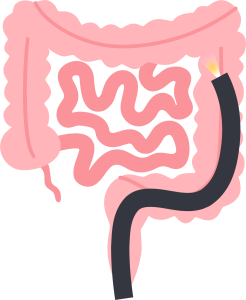Pregnancy Nutrition: What to Eat and Avoid
Pregnancy is an incredible journey that demands special attention to pregnancy nutrition. Proper nourishment during this time is crucial not only for the health of the mother but also for the developing baby.
Dr Kelly Hankins in Gosford emphasises the importance of a balanced diet that includes essential nutrients while avoiding harmful substances. Here’s a comprehensive guide to help you navigate pregnancy nutrition.
Essentials for Pregnancy Nutrition
- Folic Acid: Folic acid is vital for the development of the neural tube, which becomes the baby’s brain and spinal cord. It helps prevent major birth defects such as spina bifida. Pregnant women should aim for at least 400-800 micrograms (mcg) of folic acid daily, which can be found in leafy green vegetables, fortified cereals, and prenatal vitamins.
- Iron: Iron is essential for making haemoglobin, the protein in red blood cells that carries oxygen to the tissues. During pregnancy, the body needs more iron to support the increased blood volume and the growing baby. Good sources of iron include lean meats, poultry, fish, legumes, and iron-fortified cereals. Pairing iron-rich foods with vitamin C-rich foods like oranges and strawberries can enhance iron absorption.
- Calcium: Calcium is crucial for the development of the baby’s bones and teeth. Pregnant women need about 1,000 milligrams (mg) of calcium daily. Dairy products, such as milk, cheese, and yogurt, are excellent sources of calcium. Other sources include fortified plant-based milk, leafy green vegetables, and tofu.
- Vitamin D: Vitamin D works hand in hand with calcium to build the baby’s bones and teeth. It also supports the mother’s immune system. Sunlight exposure is a natural way to get vitamin D, but it can also be found in fortified foods like milk and orange juice, as well as fatty fish, including salmon.
- Omega-3 Fatty Acids: Omega-3 fatty acids, particularly DHA, are important for the baby’s brain and eye development. Pregnant women should aim for at least 200 milligrams (mg) of DHA daily. Good sources include salmon, walnuts, chia seeds, and flaxseeds.
- Protein: Protein is the building block of cells and is crucial for the baby’s growth, especially in the second and third trimesters. Pregnant women should aim for 71 grams of protein daily. Sources of protein include lean meats, poultry, fish, eggs, dairy products, beans, and nuts.
Foods to Include
A healthy pregnancy diet should be varied and balanced. Here are some food groups to include:
- Fruits and Vegetables: Aim for at least five servings a day. These are rich in vitamins, minerals, and fibre, which help prevent constipation.
- Whole Grains: Foods like brown rice, whole wheat bread, and oatmeal provide essential nutrients and help maintain energy levels.
- Lean Proteins: Include lean meats, poultry, fish, eggs, beans, and nuts to meet your protein needs.
- Dairy: Incorporate low-fat or fat-free milk, cheese, and yogurt to meet your calcium requirements.
- Healthy Fats: Use healthy fats like olive oil, avocados, and nuts in moderation to get essential fatty acids.
Foods to Avoid
While some foods are beneficial during pregnancy, others can pose risks to the mother and the baby. Here are some foods to avoid:
- Raw or Undercooked Seafood and Eggs: These can carry harmful bacteria and parasites that can lead to infections.
- High-Mercury Fish: Avoid fish with high levels of mercury, such as shark, swordfish, king mackerel, and tilefish, as mercury can harm the baby’s developing nervous system.
- Unpasteurised Dairy Products: These can contain harmful bacteria like Listeria, which can cause miscarriage or preterm labour.
- Processed Meats: Avoid deli meats, hot dogs, and sausages unless they are thoroughly cooked, as they can contain harmful bacteria.
- Caffeine: Limit caffeine intake to 200 milligrams (mg) per day (about one 12-ounce cup of coffee) to reduce the risk of miscarriage and preterm birth.
- Alcohol: No amount of alcohol is safe during pregnancy, as it can lead to foetal alcohol spectrum disorders.
Pregnancy nutrition plays a vital role in ensuring a healthy pregnancy and a healthy baby. By focusing on essential nutrients, including a variety of healthy foods, and avoiding those that can be harmful, you can support the well-being of both mother and child.
Dr Kelly Hankins in Gosford is dedicated to providing comprehensive care and guidance to help expectant mothers make informed choices about their nutrition during this crucial time. Always consult with your healthcare provider before making any significant changes to your diet during pregnancy.